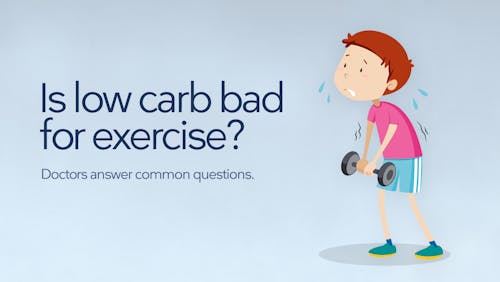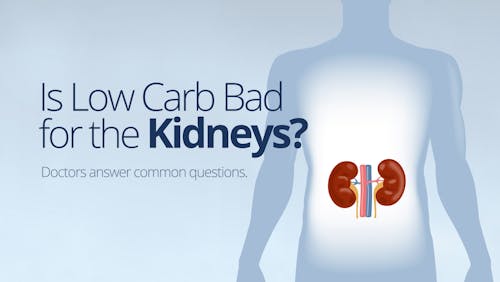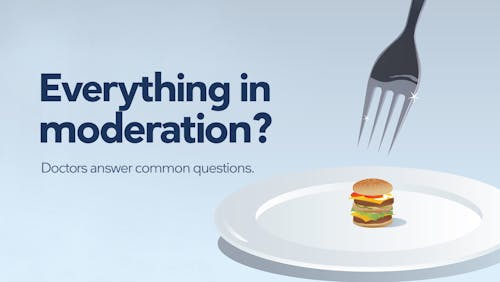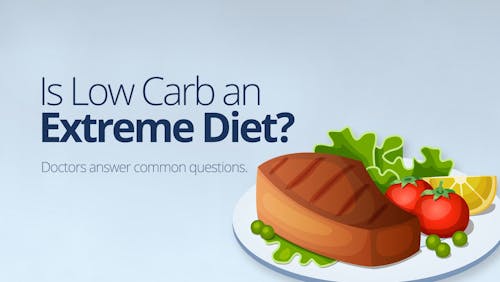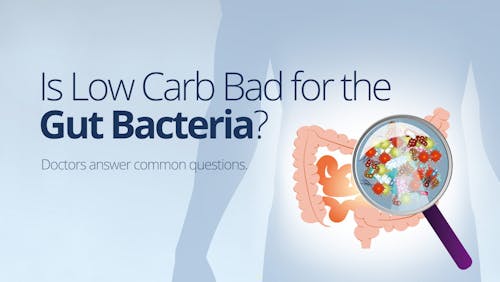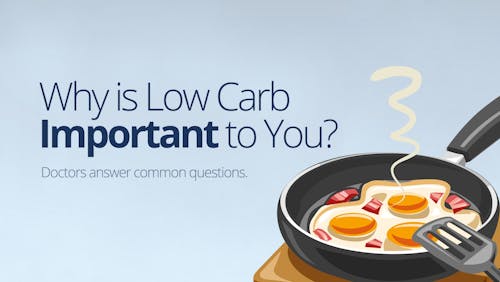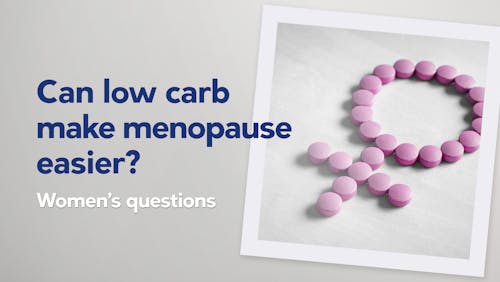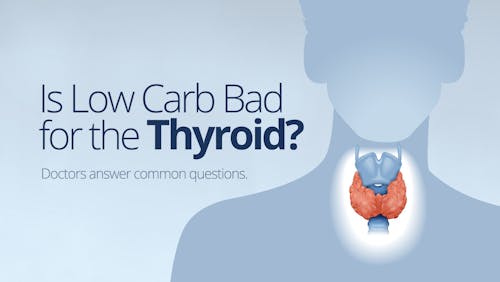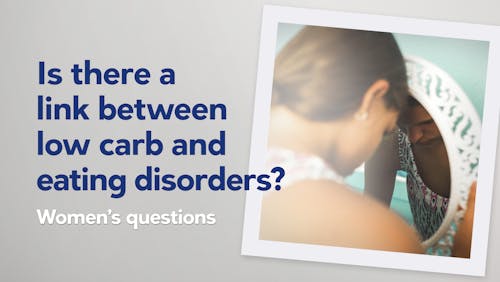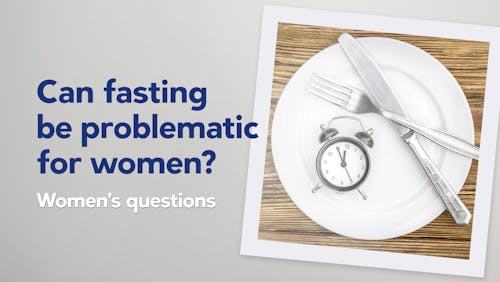Can fasting and IF for women be problematic?

How do you recover from hypothalamic amenorrhea? Is fasting problematic for women? Are carbs and fat a bad combo? And, how do you best measure ketones?
Get the answer to these questions in this week’s Q&A with fertility specialist Dr. Fox:
Can keto + IF help recover from hypothalamic amenorrhea?
I’m 33 years old, lean (21% bf) and athletic. I do weightlifting four times/week for 1h, and I believe the HA was caused by a several months intense sports event preparation. I stopped crazy training and caloric deficit in July. All hormones seem fine in recent blood tests (0.5 nmol/L testosterone, 0.8 iu/L LH level, 7 iu/L FSH) but haven’t had a period since April when I stopped the pill.
I’ve had PCOS + IR since age 13 (although never overweight) but have managed to get rid of all the symptoms thanks to keto. I never had irregular periods before. I love keto + IF (16:8 daily) – it makes me feel great and I don’t count calories or restrict anymore. However everywhere I look they say you can’t fast or avoid carbs and that you need to stop training and put on considerable weight if you want to overcome HA. It’s so confusing! In your experience, can LCHF + IF help or worsen HA? HUGE thanks, Dr. Fox.
Dr. Fox:
I believe hypothalamic dysfunction in women is an increasing problem following what I call the “exercise revolution” that began about 1980 and the dramatic change in athletics for women in U.S. schools about that time. Many women now feel ashamed if they don’t engage in some high-level sport, where just a few years prior, they were not expected to be involved in sports. In addition to the potential increase in fertility issues it creates, low estrogen can contribute to all the major psychiatric issues for women: PMS, migraine headaches, depression anxiety, ADD, bipolar etc. etc.
The sensitization to stress could potentially be permanent. Certainly, everything done to decrease stress brings the physiology back toward normal, but still needs some help. Many women with this problem could benefit from supplemental estrogen. Amenorrhea is the dramatic example, but the vast majority of women suffering from this have very subtle ovulation and menstrual changes resulting in 30-32-day cycles, something that is seen as normal by almost all physicians including reproductive medicine physicians. Only the amenorrheic patients are getting any press in the medical literature and they are few and far between. In the exercise world, these are the marathoners and the triathletes. To answer this question though, keto and relieve the nutritional stress that is present. Therefore you should stay the course!
Fasting and IF for women
Hello Dr. Fox, it is a pleasure to be able to interact with you. I am 34, healthy, 169 cm (5’5″) and 62 kilos (137 pounds), I have been doing keto for a year now. I would love to get to my goal weight of 57 kilos (126 pounds) before getting pregnant, which is why I started doing intermittent fasting (IF) and some extended fasts (two to four days). I have always had a regular menstrual cycle and no significant pain, but the last cycle was so hard I couldn’t even get out of bed. This was the cycle after I started the IF. I just read a couple of days ago that you’re not a big fan of fasting for women, could you explain why? Also, should I go back to eating breakfast, lunch and dinner (I don’t snack). I just want to shed those last kilos before getting pregnant.
Thanks a lot,
Laura
Dr. Fox:
Laura, great questions.
I think that nature has set women up to be the ultimate stress meters. Since in pregnancy you have significant added physiologic stress, nature does not want you to achieve pregnancy during times of stress. My partner, Dr. Sarah Paschall, stays in the strictest keto ranges with her nutrition. She, as other keto women that we interact with, get hypoglycemic with prolonged lack of calories (3–6 hours). This tells me that despite ketosis, blood sugar does drop. I think women have a higher baseline insulin-resistance factor than men. This makes sense in nature because with pregnancy you would have a little extra stored energy. Somehow, this may explain the drop in blood sugar described above.
This hypoglycemia is a powerful stress factor and likely generates a full-fledged stress response from the brain with increased cortisol etc. that would be associated with starvation. These signals are not positive for pregnancy. If you utilize IF for weight loss, and we do utilize it in patients who have large amounts of weight to lose, you should return to your normal calorie frequency for 12 weeks or so before conceiving for the best outcome. My recommendation would be to not worry about 5 kilos and know that your physiology, even a little overweight, is so much better than the normal-weight woman on a high-carb diet. You should continue the approach in pregnancy. Good Luck!
Right diet?
Dear Dr. Fox, my husband and I have just started the keto diet and are both very new to the subject. The main reason we are trying it is that my husband wants/needs to lose weight; whereas I am actually at my ideal weight. However, it’s easier to do a diet together, isn’t it? ;)
My question is now, as mentioned, we are still getting our heads around keto eating and I’ve noticed that over the past week quite a few carbs have snuck in (soft drinks, more fruit than usual, a few crackers here and there). As I have a feeling that this will stop our bodies getting into the full state of ketosis, I am a bit worried that with all the added fats (I have cooked with a lot more cream, coconut cream and cheese etc, as usual, this week) will we (especially myself) end up gaining weight instead of losing it?
Of course, now that I am getting a bit more into meal preps and understanding the keto diet, I’ll be more careful, but do I need to worry about those “carb” mistakes happening?
Thank you,
Anna Edmundson
Dr. Fox:
Yes, Anna, the “cheat” meals, so to speak, do bump you out of good metabolism (ketosis) and even the slightest slip up might change your metabolism for 2-5 days. It is unclear, but keto-adaptation might have to be repeated after such significant instances. Great that you are involved and you will realize the enormous benefits. Do not worry about the fat and the calories etc. as the cause of weight gain. What you will notice is a reduction in fat! Good luck.
My ketosis is at moderate
Ketosis is at moderate, how do I achieve optimal weight loss to go into ketosis?
Robin
Dr. Fox:
I assume you are saying that your testing is moderate ketones? Ketone testing is extremely variable depending on the method and the timing in your own timeline of ketosis. Blood testing is the most accurate. Moderate ketones should be a good level. I would recommend just continuing on your current path.
More questions and answers
Questions and answers about low carb
Ask Dr. Fox about nutrition, low carb and fertility – for members (free trial is available.)







